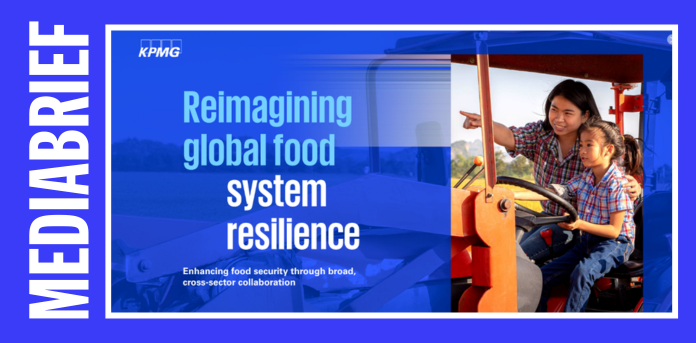Friday, 20 February 2026

KPMG International has called on governments, corporates, and investors — across sectors — to treat food system resilience as a strategic business imperative, warning that continued inaction could lead to systemic failures, deepening inequality, and accelerated biodiversity loss.
In its latest report, “Reimagining Global Food System Resilience,” KPMG highlights how escalating climate risk, rising health burdens, and geopolitical instability are collectively stressing global food systems. It notes that over 820 million people currently face hunger, even as 30 per cent of all food produced — around 1.3 billion tonnes — is wasted annually.
The report underscores the environmental footprint of agriculture, which contributes to 80 per cent of deforestation, 70 per cent of freshwater withdrawals, and one-third of global greenhouse gas emissions. Additionally, half of the global population now experiences chronic or seasonal water shortages.
Despite projections that sustainable investments will reach $53 trillion by 2025, KPMG warns that capital flows remain heavily concentrated and largely inaccessible to smallholders and emerging economies.
Drawing on insights from more than 200 global leaders across food, energy, finance, health, and infrastructure sectors, the report finds overwhelming consensus: over 70 per cent of respondents identified climate resilience and adaptation as critical to the future of food systems.
Anish De, Global Head of Energy, Natural Resources and Chemicals at KPMG International, noted that the boundaries between food and energy systems are increasingly blurred. As countries pursue decarbonization and energy security, these decisions will have direct consequences on food access, affordability, and long-term sustainability. “The need of the hour is joint planning — not isolated strategies,” he emphasized.
Apurba Mitra, Partner and ESG & Climate Change Lead at KPMG in India, added that food equity must be a core pillar of ESG strategies. “True resilience comes from systems designed to support everyone, especially those at greatest risk.”
The report outlines 10 strategic levers — from land use and water security to capital mobilization and AI-driven supply chains — essential for transforming the food system into one that is resilient, inclusive, and sustainable.
It introduces a cross-sector roadmap encompassing regenerative agriculture, climate adaptation, financial innovation, low-carbon inputs, circular food models, sustainability-linked loans, and biodiversity credits. The report urges business leaders to reassess how their organizations intersect with food systems and identify opportunities to drive long-term transformation.